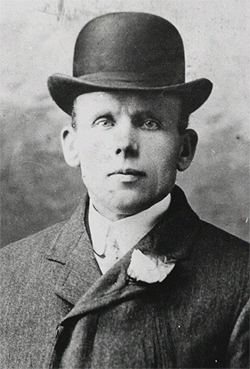Save the paperboy: a bit of child labour did me no harm
Forcing teenagers to spend their fleeting youth on menial labour is a societally important endeavour

I have mixed feelings about the looming extinction of the paperboy. These have less to do with my current career as a slinger of ink, and more to do with my previous history as a slinger of papers (through letter boxes; into porches; and at one empty house which remained so for months on end, with a gleeful hint of rebellion onto a slowly composting pile of old newspapers).
It’s not that I pine for the job, or think it was particularly rewarding. Frankly, being a paperboy sucked. I had to drag a stack of papers on a wheeled contrivance about the same size as I was through miles of paved road, mud track, and dog-infested gardens. It always seemed to rain, and in defiance of the laws of physics to rain horizontally.
iPods existed, but because they were still new and exciting they were firmly out of my budget range. This meant I was left alone with my thoughts, most of which turned out to be about how much I wanted to be doing something other than delivering papers. It was not, in short, an edifying experience. And that is precisely why I think we need to preserve it.
The noble British tradition of using child labour to cut costs and get stuff done that adults can’t be bothered with is on its last legs. The mines have professionalised, manufacturing has been offshored to countries with less compunction about shoving nimble-fingered children into machines to fix their inner workings, and the Boriswave has come for what remaining roles were available to illiterate teenagers with a fumbling grasp of English.
This is a problem, because having a job in your youth teaches you lessons that are otherwise hard to come by. These have absolutely nothing to do with the value of money, of hard work, responsibility or punctuality, or indeed the importance of cheery customer service with a smile.
Instead, you learn vital things like “never volunteer for the great route no-one else wants, for some mysterious reason”. You learn to calmly hold your ground when an outraged customer insists that you failed to deliver their copy (what are they going to do? Prove the absence of a newspaper?), and then, should you discover the evidence at the bottom of your bag several days later, dispose of the evidence without telling a soul. You learn to lighten the load by scrupulously sticking to the letter of the requirements (or in my case, a highlighted route map), and refusing to set foot outside of them. And you learn that nobody really cares about any of this, so long as most of the work is done and most of it is roughly on time.
You receive an education in cynicism, buck-passing, and – when the time comes to seek employment – grotesquely inflating your CV as you attempt to ditch your current role without revealing what you actually do (I opted for “delivery coordinator”). And perhaps most of all, you learn that the world is a capricious place. Nailing all this down early is why forcing teenagers to spend their fleeting youth on menial labour is a societally important endeavour.
There is nothing that quite solidifies a nascent sense of socioeconomic injustice like hoisting a bag onto a trolley, striding out on a glorious day when the sky is bright and blue and the world is filled with adventure and possibility, and proceeding to squander it working while the kids who negotiated better pocket money deals go out for ice cream.
If nothing else, it cements a firm desire to be one of the ice-cream kids in later life, and to scrabble, network, work and grind until that status is achieved. All of which is to say: I suppose it did teach me something useful after all.
[Source: Daily Telegraph]
























































